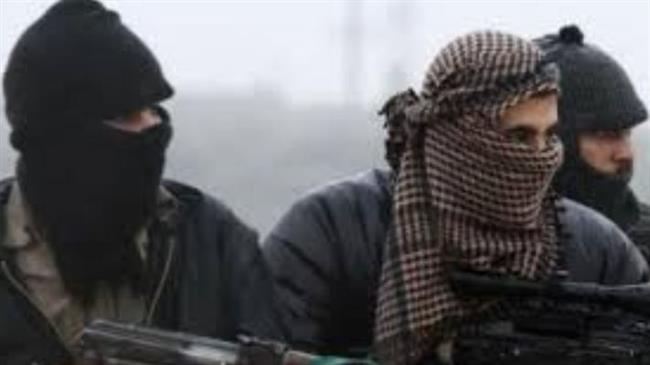Will France review policy on Syria?
The deadly attack against the satirical magazine Charlie Hebdo has put on the table the issue of the fight against terrorism. Almost simultaneously, a terrorist attack took place on the border between Iraq and Saudi Arabia. Three Saudi guards, including General Odah al-Balawi, were killed by ISIL terrorists who were trying to infiltrate the kingdom. Both incidents have highlighted the vulnerability of both countries to the terrorist threat.
However, France has maintained a very ambiguous stance on terrorism in the Arab world. In their speeches, French leaders reaffirm time and again their commitment to fight terrorism in all its forms. On the ground, however, things are different. France has contributed money and weapons to the terrorist groups in northern Syria in order to overthrow the government of Bashar al-Assad. President François Hollande himself recently acknowledged that France has armed the “rebels” fighting the Syrian army. The same operation had previously been carried out in Libya. France encouraged armed militias to fight the regime of Muammar al Gaddafi before bombarding the country, which has now turned into a sanctuary for international terrorism.
In its policies in the Middle East, France has allied with some Persian Gulf regimes sponsoring extremism and terrorism, such as Saudi Arabia and Qatar. Some French experts claim that Saudi Arabia has worked in France to convert Muslims to Wahhabism, the Saudi state´s religion and the ideology of Al Qaeda and ISIL. Issa Ayyoubi, a professor of international law, points out that Saudi Arabia “has never invested money on the development of Muslims in France as a community, but it has only sought to spread the Wahabi trend”. Both Saudi Arabia and Qatar have invested a lot of money in France and have achieved undeniable influence over the French foreign policy. All these countries have sponsored terrorist groups fighting the Syrian state.
Therefore, French policies and Wahabi sectarian propaganda have actually encouraged hundreds of French -and European- young people to go and fight in Syria. However, these policies have clearly backfired. Two of the terrorists who carried out the attack against Charlie Hebdo, Said and Cherif Kouachi had recently come from Syria where they had reportedly gained combat experience.
Now, European countries fear the return of their nationals fighting in Syria. French -and other European- intelligence services are knocking on the doors of Damascus in order to establish security coordination with Syria. According to some Lebanese media, Syria has responded positively to French demands, but it has stipulated that France must restore its diplomatic relations with Syria in order to establish such cooperation. France has so far failed to respond.
Unfortunately, the attacks will be used by the far-right parties, above all the neofascist National Front, to increase their demagogic campaign against immigrants, and especially against Arabs and Muslims. This fact shows that the interests of extremists (both neofascists and Takfirists) intersect and the two groups need each other in order to achieve their common goal: to destroy religious and social coexistence in France and Europe.
In this way, apart from the employees of the magazine who were killed, the real victim of the terrorist attack in Paris will be the Muslim community in France, which was already suffering from acute Islamophobia before the attacks. The real winners are the Marine Le Pen´s party and the entire right-wing extremist movement in Europe. Therefore, no one can exclude the possibility that the Paris attacks were facilitated, and even instigated, by agencies and interests of which the terrorists were even not aware.
Significantly, the attackers appeared to have detailed intelligence on the magazine. “The attackers were well informed and knew the weekly editorial board meeting was Wednesday at 10 a.m. Otherwise, the rest of the week, people are not around so much,” another Charlie Hebdo journalist told Le Monde.
Two choices
Currently, France has two choices, as the United States did after the September 11 attacks. The country can engage in a serious process to strengthen its political and security position, which requires a radical change in its strategy, or it can escape forward and maintain its erroneous policies that have led to the growth of terrorist groups and their ideology not only in Syria and Iraq, but also in Europe and other parts of the world.
France is taking part in the airstrikes of the US-led coalition in Iraq but, according to experts, these attacks will be ineffective without intelligence and military cooperation with the governments of the region, particularly the Syrian one. The Syrian army is today the most powerful force in the war against terrorism in the region and the French arrogant policy not to speak with Damascus has started to turn against France itself.
The fight against terrorism requires a more serious commitment by Western countries and France in particular. French and American leaders should review their position and abandon all practices encouraging terrorism, such as the training and arming of “moderate rebels in Syria” who are neither moderate nor rebels but bloodthirsty terrorists. Only time will tell if he infamous massacre at Charlie Hebdo magazine will lead French -and Western- political and military leaders to change their policy on counter-terrorism in order to improve the regional and international cooperation on this issue and to prevent more infamous attacks both in Europe and the Middle East.
PRESS TV

